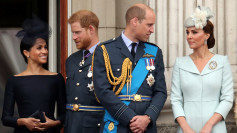The BBC is facing one of its most serious credibility crises in years after U.S. President Donald Trump threatened to sue the broadcaster for £759 million ($1 billion), alleging defamation tied to an edit made in a Panorama documentary concerning his remarks on January 6, 2021. The dispute has prompted leadership resignations, internal dissent, and renewed political scrutiny of the institution's editorial independence.
Trump's legal team claims the programme, Trump: A Second Chance?, aired before the 2024 U.S. election, misleadingly spliced together separate sections of his January 6 rally speech to give the impression that he urged supporters to march on the Capitol and "fight like hell." His lawyers have demanded a full retraction, a public apology, and damages amounting to "no less than £759 million ($1 billion)."
The BBC confirmed receipt of legal notice and stated it would respond "in due course." The broadcaster acknowledged that the edit was "misleading in context" but described it as a production mistake rather than a deliberate attempt to shape political perception.
The Associated Press previously reported that the documentary combined remarks from two parts of the speech delivered nearly an hour apart. While Trump did use the phrase "fight like hell," the BBC edit presented it adjacent to his call to march, suggesting a direct causal link.
The fallout inside the broadcaster was immediate. Director-General Tim Davie and Head of News Deborah Turness resigned, citing accountability for the lapse in editorial oversight. BBC Chair Samir Shah issued a public apology, stating the editing decision constituted an "error of judgement" that "fell short of the BBC's standards of accuracy and fairness." Shah rejected claims that the corporation was politically motivated, telling The Guardian the board "was not politically driven."
However, the incident comes amid broader internal disputes. A leaked internal memo from former BBC standards adviser Michael Prescott alleged systemic editorial inconsistencies in coverage of U.S. politics, Gaza, and transgender issues. The memo cited a "lack of clear managerial response" and deepening divisions inside the newsroom.
The controversy has re-energized critics from both the Conservative and Labour parties who have questioned whether the BBC's Royal Charter framework adequately enforces neutrality. Media policy analysts noted the timing is particularly sensitive as the government prepares for the next scheduled Charter review period.





